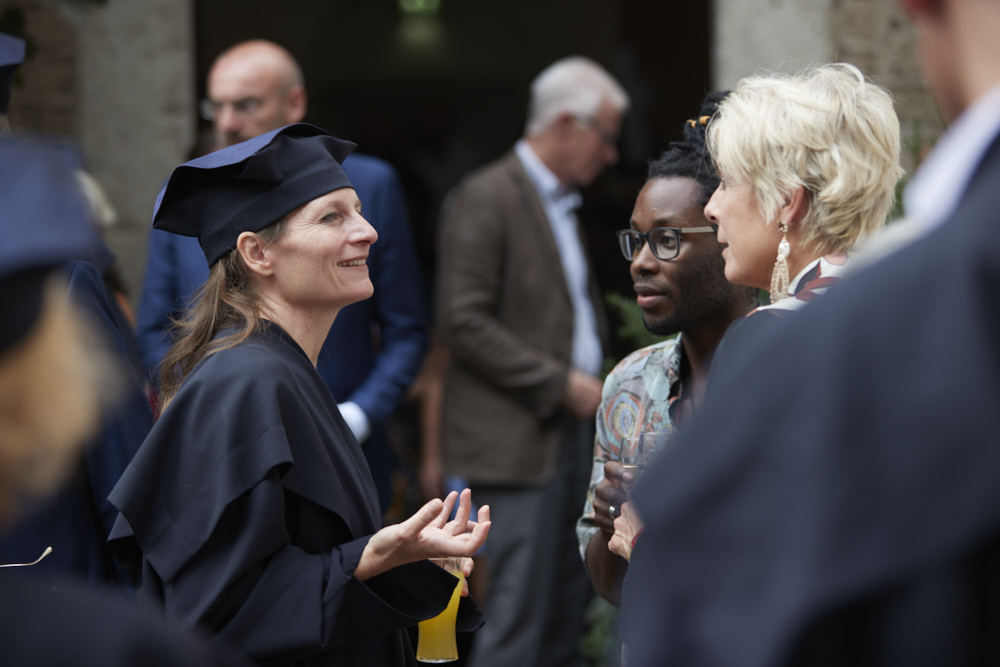Humanism and Philosophy
The Humanism and Philosophy research department investigates the meaning of (renewed) humanism in the present day, with the aim of contributing to the construction of humane, pluralistic and sustainable societies.
The department consists of philosophers and social scientists. They focus on theoretical and empirical research into contemporary social practices from a humanistic perspective.
They also critically reconstruct the history of humanist traditions, such as art, religion and philosophy, and examine the impact and significance of contemporary humanist (religious and secular) movements. They develop a renewed perspective on the philosophy of humanism as a global critical theory, with an eye for urgent social, political and ecological problems.
Chair
prof. dr. Christoph Henning, Professor of Humanism and Philosophy
Professors
- prof. dr. Manuela Kalsky, Professor by Special Appointment at the Karen Armstrong Chair for Religion, Values and Social Transformations
- prof. dr. Anja Machielse, Professor by Special Appointment of “Resilience of Older People” on behalf of the Municipality of Rotterdam
- prof. dr. Annika Smit, Professor of Resilience in Policing on behalf of the Police Academy
Assistant professors / researchers
- dr. Marieke van den Doel, Assistant Professor of History of Humanism
- dr. Adriënne de Ruiter, Assistant Professor of Humanism and Philosophy
- dr. Abdelilah Ljamai, Assistant Professor of Islam and Humanism
- dr. Willeke Los, Assistant Professor of History of Humanism
- dr. Daan Oostveen, Assistant Professor of Philosophy and Religion
- dr. Fernando Suárez Müller, Assistant Professor of Social and Political Theory
PhD candidates
- Laurine Blonk MA
- Bram van Boxtel
- Jolanda van Dijke
- Julian van Vugt, PhD-student and Junior Lecturer
External PhD candidates
- Chloe Beeris (Butler)
- Renate Geuzinge
- Danielle Leder
- Judith Meijer
- Nikita Rombouts
Emeriti
- prof. dr. Joachim Duyndam, emeritus professor of Humanism and Philosophy
- prof. dr. Peter Derkx, emeritus professor of Humanism and Philosophy
- prof. dr. Roelof Hortulanus, emeritus professor of Social Interventions and Social Policy
- prof. dr. Anja Machielse, emeritus professor of Humanism and Social Resilience


